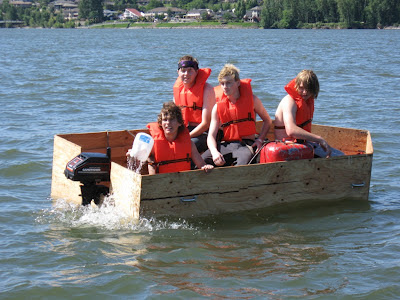History is littered with examples of animal populations that expanded when new resources were found. Farmers know about the good seasons that result in mouse plagues.
It is typical for populations to boom during good years and then collapse suddenly in bad years, or when they overrun the resource base. It's the natural boom and bust cycle.
Human populations have boomed and busted throughout history, and resource depletion has been an important factor. Jared Diamond's book
Collapse examines the boom and bust effect in eight historic and four contemporary societies.
It is clear that human population has been booming over the past 200 years, as illustrated in this
graph based on UN 2010 projections.
The resource that has underpinned this population boom is the energy from coal, oil and gas which has allowed billions of people to be fed, and to live lives of unimaginable wealth. This wealth has brought immense riches to the top 1% and also health, education, comfort and civil society for general populations.
Right now, we are at the point of overrunning the resource base. The biggest whammy is that fossil fuel supplies cannot keep up with demand as shown by rising prices. Can't argue with that. There's a limited supply of the stuff.
This graph shows that oil prices have risen when spare capacity has fallen.
The next chart shows that natural gas prices are rising in Europe and Japan, though US prices are
held down by a current production boom and a warm winter.
Even coal, the most abundant fossil fuel, is rising in price.
Not only are coal, oil and gas supplies unable to keep up with increasing demand, but we know that we can't keep using even the reserves that we have, due to the damage they cause through the greenhouse gases they emit. As the damage from climate change becomes ever more apparent, countries will act to cut carbon emissions. Fossil fuel reserves are looking more and more like
stranded assets.
The
Dinosaur Economy, based on fossil fuels, will end. It will be followed by a new Clean Energy economy. If we manage to build a bridge between the old and the new, we have a chance to avoid the ghastly impacts of the Bust part of the cycle.
If we don't build that bridge, we'll fall into a chasm where we have very limited energy resources for a period of time. In that chasm,
all the horrors of the Bust cycle will be
unleashed – starvation, displacement and war as people fight for limited food, water and shelter. Walls will go up between the haves and the have-nots. Populations will collapse and those that are left will adjust to the new, lower resource base.
That's the natural Boom and Bust cycle.
If we do manage to build a bridge, or ramp or something, across to the other side, we can minimise the
inevitable disruption. We can adjust to the new resource base as we go along. It's already happening as countries move to replace fossil fuel with renewables.
If we avoid the Boom and Bust cycle, we won't be a plague upon the earth, instead we'll be more like responsible custodians. They're much more lovable than a plague.
















